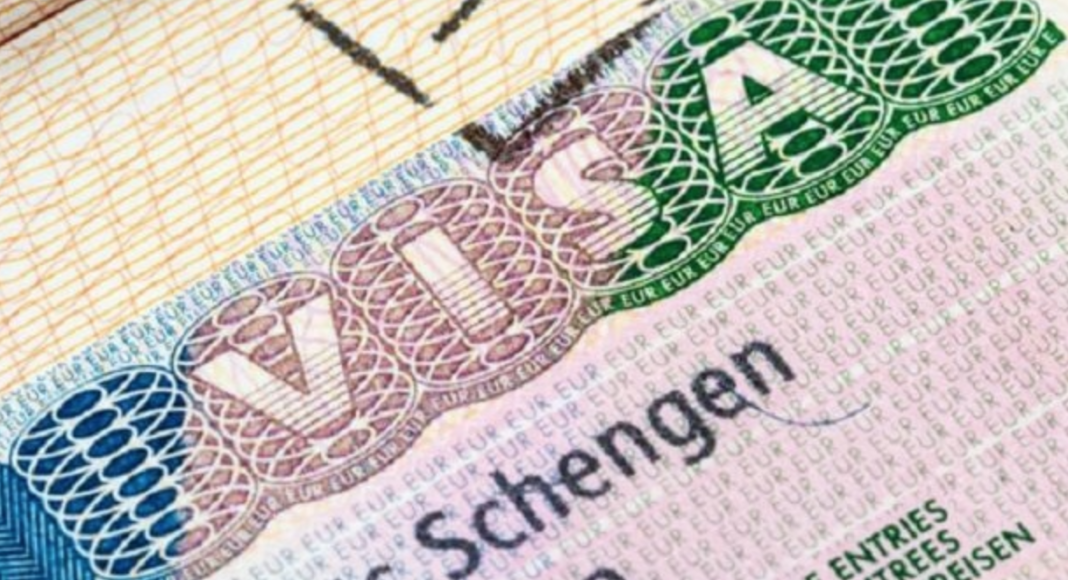A trip to much of Europe has gone costlier from Sunday with an increase in Schengen visa fees to €80 from the current €60, officials said.
A Schengen visa is needed to visit 26 European countries, including Austria, Denmark, France, Germany, Greece, Switzerland and Spain.
“The visa fee increases from Euro 60 to Euro 80. This increase is the first one since 2006,” an European Union (EU) official told PTI.
The increase in the visa fee comes as an updated Schengen Visa Code takes effect from February 2 this year.
It brings the fee in line with the level where it would be today if it had been aligned to the general EU-wide inflation rate since 2006, they said.
“The increased visa fee will provide member states with additional financial resources to process visa applications quickly and more efficiently. By international standards, the visa fee remains low,” the official said.
For regular travellers, the fee increase is offset by the new rules on long-validity visas.
These travellers may actually save money under the new provisions, since they have to apply for visas less often, they said.
Minors
Visa fee is still waived for children below six-years-old (as it was the case in the previous rules).
“The visa fee for minors between the age group of 6 and 12 years remains half of the general fee, and thus increases by Euro 5 (to Euro 40),” the official said.
In addition, it is now possible for member States to waive the visa fee for minors between the age group of 6 and 18 years under the new visa regime.
According to the latest exchange rates, a Euro is equivalent to ₹79.37.
People can now apply for the Schengen visa six months before the intended date of travel to Europe instead of three months timeline.
The minimum time period will now be nine months for seafarers, they said.
Multiple-entry visas
In addition to this, frequent travellers with a positive visa history are to be granted multiple-entry visa with a gradually increasing validity period from one year to a maximum of five years, which will save applicants time and money, the official said.
For instance, an applicant who has obtained and used correctly three visas within two years would be granted during this period a multiple-entry visa valid for one year.
An applicant who has obtained and used a multiple-entry visa of one year would be granted (if applied within two years) a multiple-entry visa valid for two years, they explained.
An applicant who has obtained and used a multiple-entry visa of two years would be granted (if applied within three years) a multiple-entry visa valid for five years, the official added.
The visa code also provides for the possibility to adapt the rules for individual countries according to assessment of local circumstances and migratory and security risk, by the local Schengen cooperation, they said.
Such adaptation would be adopted by the European Commission.
The new rules also foresee the possibility to submit an electronically-filled application form, which can also be signed electronically if recognised by the member state competent for examining and deciding on the application, the official said.
Each Schengen member state sets its rules regarding recipient of submissions either directly at an embassy/consulate/mission, or through an external service provider.
More than 16 million Schengen visa applications have been filed at the embassies, consulates and visa centres of the 26 Schengen member countries across the globe in 2018, according to SchengenVisaInfo.com.
In 2018, India was listed as the third largest source for Schengen visa applications with 10,81,359 such requests made from the country, it said.
Citizens of the following countries require a Schengen Visa:
Afghanistan, Algeria, Angola, Armenia, Azerbaija, Bahrain, Bangladesh, Belarus, Belize, Benin, Bhutan, Bolivia, Botswana, Burkina Faso, Burma/Myanmar, Burundi, Cambodia, Cameroon, Cape Verde, Central African Republic, Chad, China, Comoros, Congo, Cote D’ivoire, Cuba, Democratic Republic Of Congo, Djibouti, Dominican Republic, Ecuador, Egypt, Equatorial Guinea, Eritrea, Ethiopia, Fiji, Gabon, Gambia, Ghana, Guinea, Guinea-Bissau, Guyana, Haiti, India, Indonesia, Iran, Iraq, Jamaica, Jordan, Kazakhstan, Kenya, Kuwait, Kyrgyzstan, Laos, Lebanon, Lesotho, Liberia, Libya, Madagascar, Malawi, Maldives, Mali, Mauritania, Mongolia, Morocco, Mozambique, Namibia, Nauru, Nepal, Niger, Nigeria, North Korea, Oman, Pakistan, Papua New Guinea, Philippines, Qatar, Russia, Rwanda, Sao Tome And Principe, Saudi Arabia, Senegal, Sierra Leone, Somalia, South Africa, South Sudan, Sri Lanka, Sudan, Suriname, Swaziland, Syria, Tajikistan, Tanzania, Thailand, Togo, Tunisia, Turkey, Turkmenistan, Uganda, Uzbekistan, Vietnam, Yemen, Zambia, Zimbabwe.
Sourced via The Hindu.
